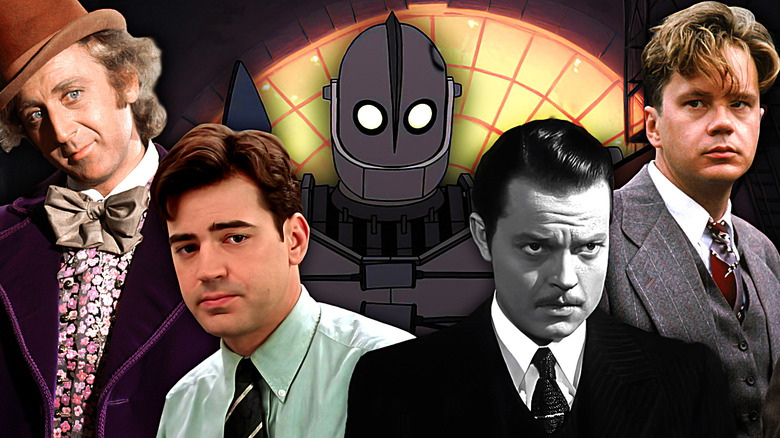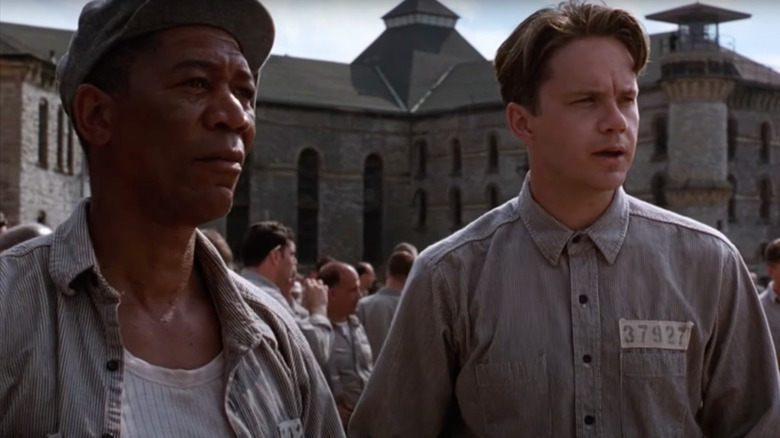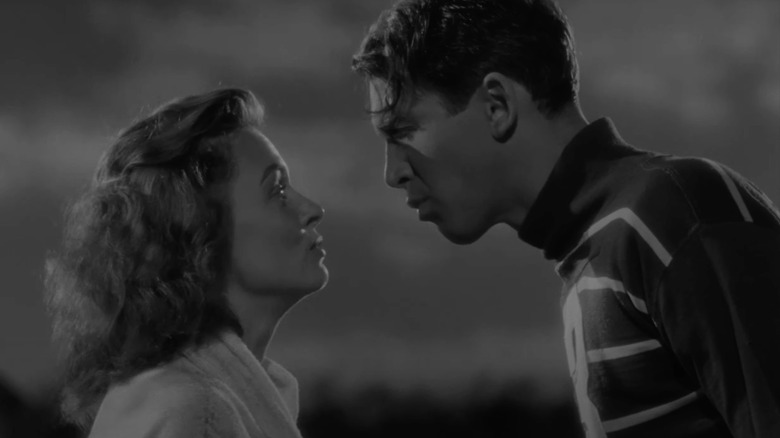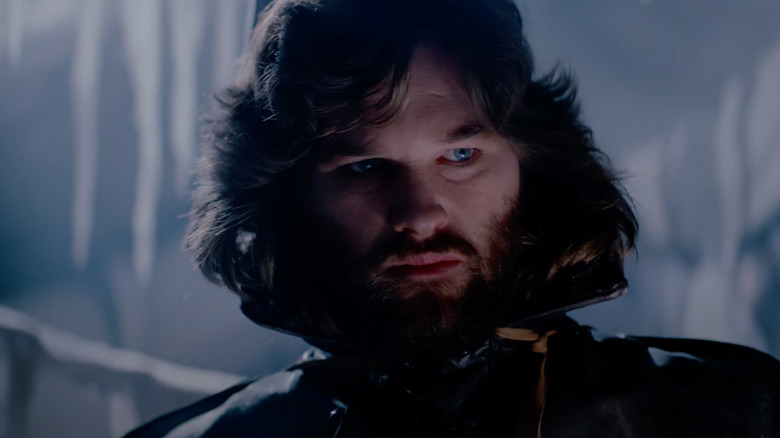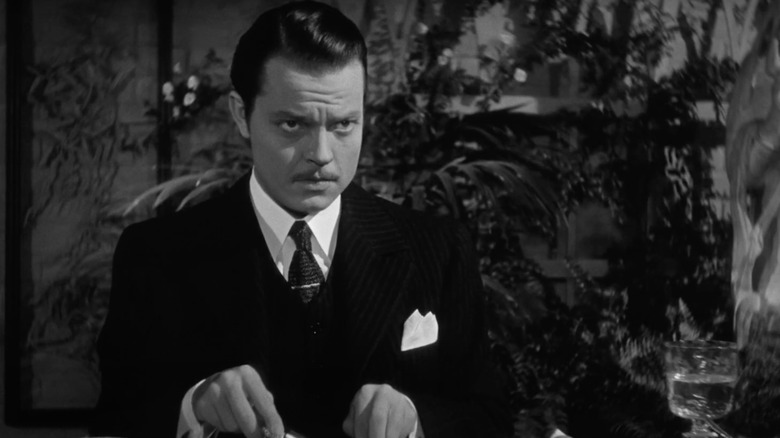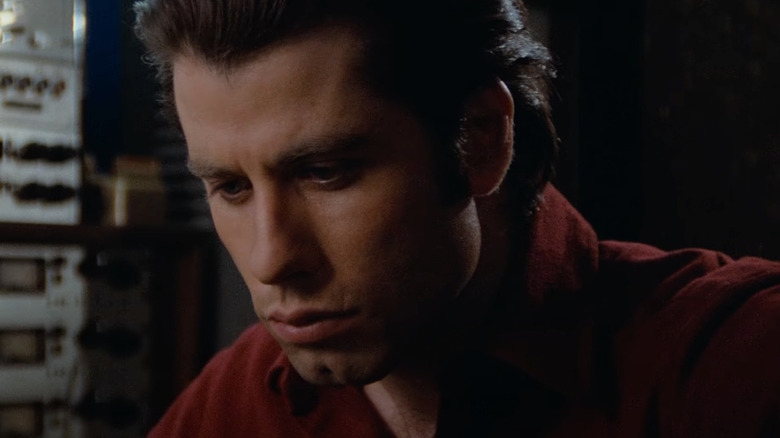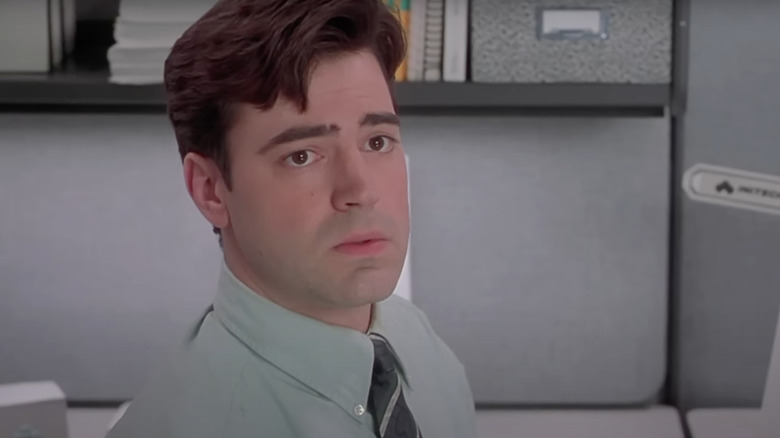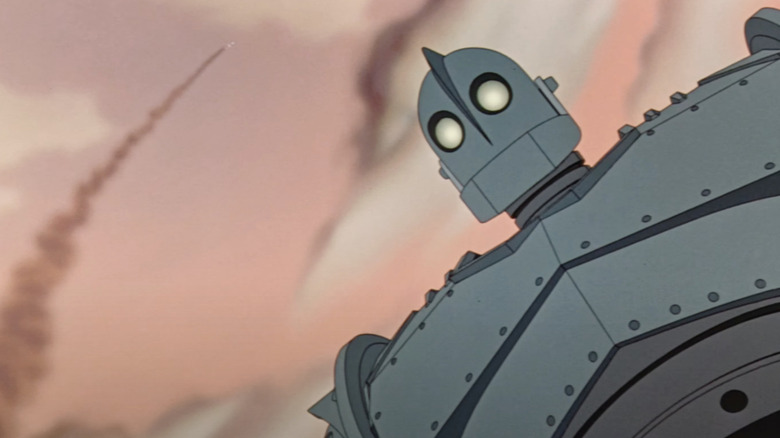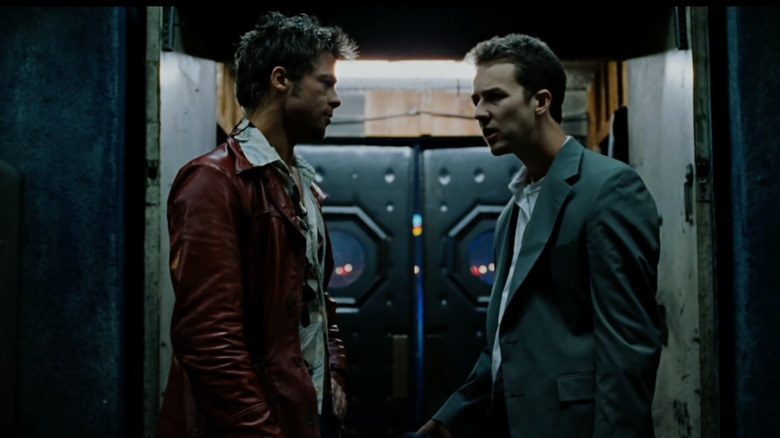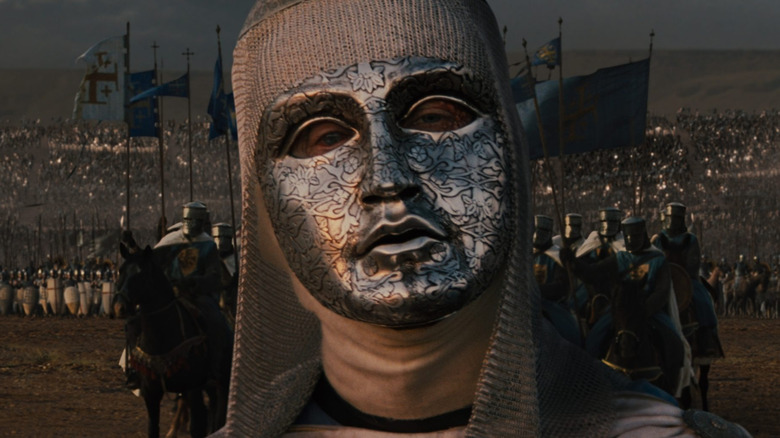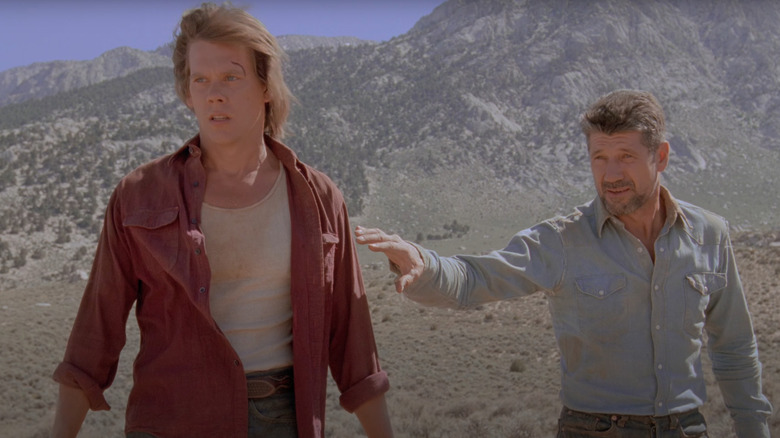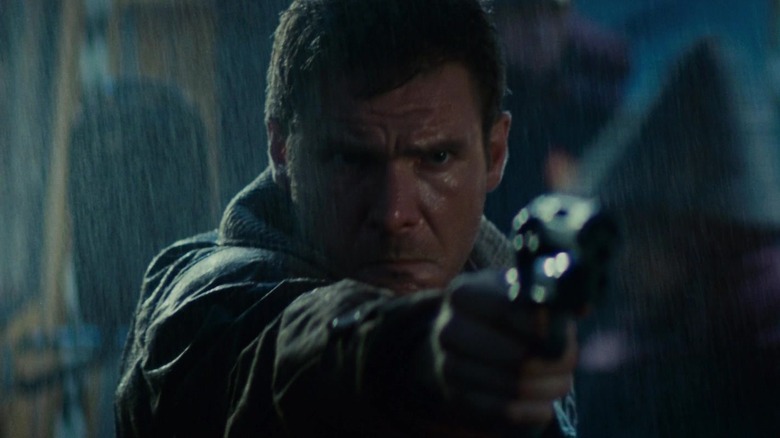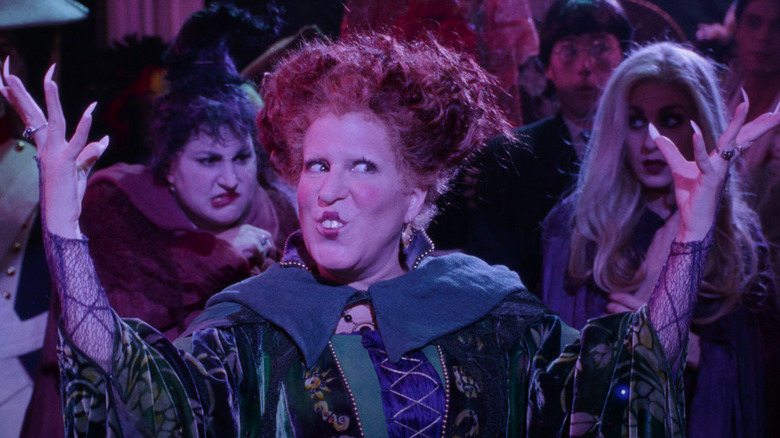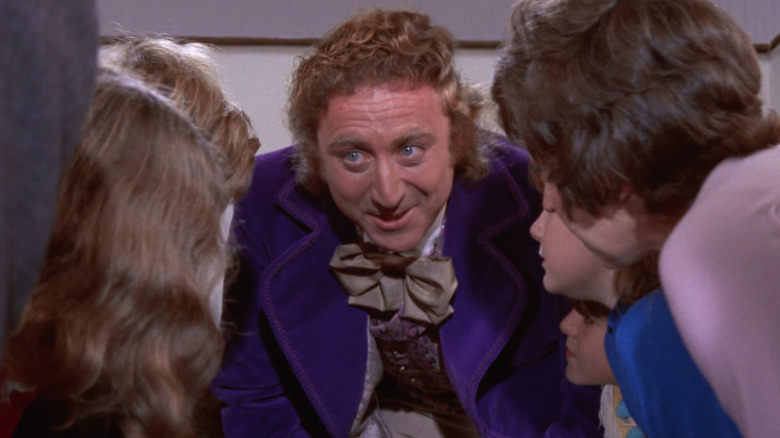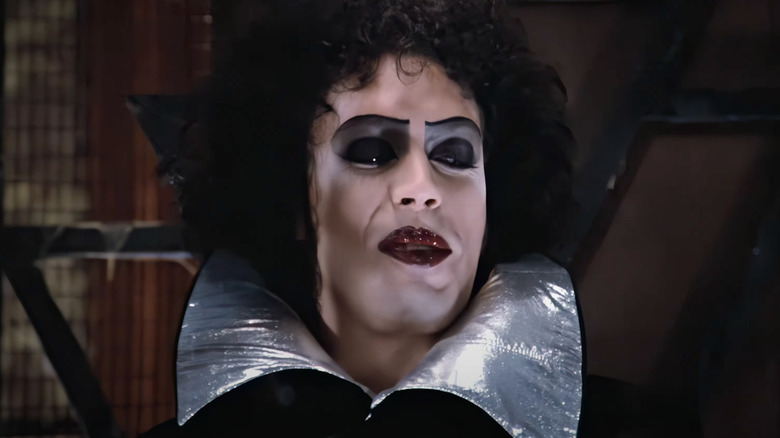Movies That Found Success After Bombing At The Box Office
Making a successful movie in Hollywood is a challenging feat for even the best filmmakers. Then again, sometimes even the greatest cinematic endeavors get overlooked as a result of circumstances beyond their control. For every surefire hit like "Jurassic Park," "The Avengers," and "The Dark Knight," there exists a handful of pictures moviegoers ignore before discovering them years, even decades, after their initial release.
Classics like "The Shawshank Redemption" and "Office Space" failed miserably at the box office but eventually became beloved cinematic treasures after hitting home video and cable. Others, like "Hocus Pocus," steadily accrued a devoted fan base over time, while "The Rocky Horror Picture Show" fell flat on its face but quickly reworked itself into a campy treat audiences could participate in, leading to prolonged success.
While there are too many belated hits to list in this article, we've compiled a handful of our favorite movies that found fame and fortune after bombing at the box office, ranked in no particular order. Chances are, you've seen many of the titles presented here, but you might be surprised to learn that some of your favorite motion pictures were disregarded in cinemas. Read!
The Shawshank Redemption (1994)
Around the time Robert Zemeckis' "Forrest Gump" was enjoying a lucrative box office run en route to massive Oscar success, Frank Darabont's awkwardly titled "The Shawshank Redemption," based on a short story by Stephen King, quietly slipped in and out of theaters and might have gone the way of the Dodo if Ted Turner hadn't swooped in and saved it from extinction. "When it came out it got good reviews, it got nominated for Academy Awards, but nobody saw it," star Tim Robbins told The Guardian. "It was VHS and [Ted] Turner playing it on his television channel [Turner Classic Movies] that changed that."
Indeed, since its meager $28 million box office run, "Shawshank" has emerged as one of the most beloved films of all time. To this day, whether it's on a fan poll or an official critic's top 10, Darabont's 1994 classic rarely struggles to secure a place on the list.
"The Shawshank Redemption" is the ultimate crowd pleaser, a thoughtful journey with a fabulous ending, and features amazing performances from Robbins and Morgan Freeman. It's nearly impossible to pass this one up when it airs on TV.
It's a Wonderful Life (1946)
There was a time when few talked about "It's a Wonderful Life." Frank Capra's exceptional Christmas drama hit theaters in 1946 and crashed and burned so severely that star James Stewart refused to ever work with Donna Reed again, blaming the movie's failure on her. Despite the public sentiment, the film still earned Oscar nominations for best picture, best actor, best director, best sound, and best film editing. However, the story of George Bailey (Stewart), a good-hearted man stuck in the simple town of Bedford Falls who gets to see how the world would look without him, had to wait several decades to find its audience. Thankfully, a legal loophole dumped the film into the public domain in the early '70s, allowing television networks to air it continually on the cheap during the holiday season, and the rest is history.
"It's the damnedest thing I've ever seen," Capra told the Wall Street Journal (via BBC) in 1984. "The film has a life of its own now, and I can look at it like I had nothing to do with it."
The Thing (1982)
Gory and unsettling, John Carpenter's "The Thing" consistently ranks alongside the horror greats. Our staff selected it for their list of the 106 best horror movies ever, and for good reason — this 1982 creature feature starring Kurt Russell goes hard and oozes with atmosphere. While "The Thing" is now a pop culture staple, it struggled to connect with audiences upon its release in the summer of 1982.
Carpenter's sci-fi bonanza earned a disappointing $20.6 million worldwide box office against a $15 million budget. Critics like Roger Ebert applauded the film's effects and called it "a great barf-bag movie" in his review, but curiously criticized the characters. Carpenter, riffing on Howard Hawks' 1951 film "The Thing from Another World," deploys plenty of gore to make audiences squirm, but he also dedicates a great deal of time to show how this terrifying creature directly affects the people stuck inside Outpost 31. Modern critics recognize the brilliance in Carpenter's work. "Human beings are social creatures by nature," wrote Wael Khairy on RogerEbert.com. "We are not meant to deal with prolonged isolation; it directly affects our mood." He explains that "The Thing" is a commentary about human paranoia and a powerful allegory to the HIV epidemic of the 1980s.
Perhaps that's why the reputation of "The Thing" has transformed over the years and why it consistently ranks alongside other genre classics.
Citizen Kane (1941)
Yes, the film many consider the literal GOAT of cinema flopped at the box office in 1941, forcing RKO Pictures to take a $150,000 loss. This happened despite glowing critical reviews and numerous accolades. The National Board of Review selected "Citizen Kane" for Best Picture, and the Academy of Motion Pictures Arts and Sciences awarded it nine Oscar nominations, including best picture, best director, and best actor.
Yet, audiences simply didn't care.
Today, "Citizen Kane" is a cornerstone in film studies, endlessly dissected in classrooms and books. Actors, directors, producers, and writers routinely shower Welles' masterpiece with praise; it famously topped the American Film Institute's list of The 100 Greatest American Films of All Time, outpacing the likes of "The Godfather" and "Casablanca." In 2020, David Fincher explored the making of "Citizen Kane" in "Mank," while everything from "The Real Ghostbusters" to "Married ... with Children" have paid homage to the film's iconic "Rosebud" line.
How did moviegoers miss out on one of the most influential films of all time? The complex narrative about one man's rise and fall is brought vividly to life by Gregg Toland's stellar cinematography, Welles' clever use of special effects, and a poignant ending that touches on the loss of innocence. "Citizen Kane" may not be a crowd-pleasing blockbuster, but it undoubtedly lives up to its storied reputation.
Blow Out (1981)
"Blow Out" kicked off a run of box office duds ("Scarface" and "The Untouchables" notwithstanding) for director Brian De Palma, culminating with the 1990 disaster "The Bonfire of the Vanities." That's unfortunate because this John Travolta vehicle is a slickly crafted film with a clever premise, stylish cinematography, and innovative sound design. Despite De Palma's unique craftsmanship, audiences weren't captivated, and the $18 million production failed to recoup its costs.
In the decades since its release, "Blow Out" has seen a massive uptick in respect, even entering the esteemed Criterion Collection on DVD and Blu-ray. Quentin Tarantino ranked it as one of his favorite films, and /Film's Ben Pearson described it as "a Fourth of July movie that builds to an unforgettable ending," He explained, "What De Palma does in the denouement — his commentary about a person pouring his own worst memories into the making of a film for the enjoyment of others — is a bittersweet, devastating, haunting, and perfect way for movie film to conclude."
Office Space (1999)
As crazy as it sounds, Mike Judge's hilarious comedy "Office Space" flopped in cinemas despite a then-red-hot Jennifer Aniston leading a capable cast consisting of Ron Livingston, Gary Cole, and Stephen Root. Today, it's hard to find someone who wouldn't laugh at the line, "I believe you have my stapler," but in 1999, audiences avoided the first full-length live-action film from the creator of "Beavis and Butt-Head," leading to a disappointing $12 million worldwide gross.
What happened? According to Judge, studio heads weren't wild about the film, mainly because, as he explained in an interview with The AV Club, they had never worked in that type of office setting. They didn't understand the humor. Judge and the studio butted heads on everything from casting to marketing, essentially eliminating the movie's chances of success. "Office Space" opened at No. 8 at the box office and would have vanished forever if not for Comedy Central.
"At some point, the movie got on Comedy Central, which played the hell out of it," Livingston told Entertainment Weekly in 2019. "It felt like it kind of went viral before that concept even existed." Around 2003, the studio started asking for a sequel, a wild about face for a film that bombed a few years earlier. "Office Space" now ranks among the best comedies of all time and resonates as much today as it did in 1999.
Oh, and remember, next Friday is Hawaiian Shirt Day.
The Iron Giant (1999)
Disney dominated the '90s animation scene, making it difficult for other studios to succeed. Case in point: Warner Bros.' 1999 "The Iron Giant," an amazing family adventure that flopped hard after a ho-hum marketing campaign, accruing a measly $31 million worldwide, easily bested by the Mouse House's "Tarzan." That final tally places "Iron Giant" (as of this writing) at No. 364 on the all-time worldwide animated box office chart. It barely outgrossed "Superstar," despite stellar reviews, an original story, and stunning animation.
Directed by Brad Bird, "The Iron Giant" has since found success on home video and carved out a lasting legacy. An article written by Seongyong Cho on RogerEbert.com called the film "a superlative work full of spirit and imagination" and "one of the best animation films of all time." "The Iron Giant" is instantly recognizable, appearing in movies like Steven Spielberg's "Ready Player One" and Malcolm D. Lee's "Space Jam: A New Legacy."
Somewhat ironically, Bird went on to direct the Incredibles movies and "Ratatouille" for Pixar.
Fight Club (1999)
"Fight Club" falls in the "ahead of its time" category, as audiences weren't fully prepared for David Fincher's provocative, satirical examination of masculinity in a modern society obsessed with consumerism. This dark 1999 picture, starring Brad Pitt and Edward Norton, carried a hefty $65 million price tag, barely crossed the $100 million worldwide threshold, and famously divided critics. As it turns out, moviegoers weren't interested in a brutal, nihilistic, dark comedy in the middle of October. The picture was ignored at the Oscars and all but left for dead.
Luckily, Fincher's adaptation of Chuck Palahniuk's equally divisive novel gained a cult following when it hit DVD, selling millions of copies. Wrote The New Yorker's Peter C. Baker on the film's 20th anniversary: "The movie has become part of the contemporary mass-cultural canon through which large numbers of men try to think through masculinity."
Today, it's hard to find someone who hasn't seen "Fight Club." Fincher's epic is widely regarded as a towering cinematic achievement and one of his finest works – just don't talk about it.
Kingdom of Heaven (2005)
Ridley Scott's "Kingdom of Heaven" arrived with much pomp and circumstance — "From the director of 'Gladiator,'" exclaimed promotional material — but garnered little interest on its opening weekend, earning just $19 million domestically. Remarkably, this epic film about the Crusades managed $218 million worldwide, primarily thanks to strong international sales. Good, right? Well, unfortunately, it cost $130 million to produce, and ... well, you do the math.
Like several of Scott's films, "Kingdom of Heaven" fell prey to the editing room, where 50 minutes of footage were cut to create a more streamlined story for general audiences. For example, a subplot involving Eva Green's character was removed entirely, leaving her character oddly aloof in the final act. Would audiences have turned up to see Scott's original three-plus-hour vision? That's debatable.
What's not debatable is that the director's cut, released a few months after the theatrical cut, is, by and large, a much better film.
/Film's Devin Meenan praised the director's cut as "one of [Scott's] best films flat out." He's not wrong. Despite a miscast Orlando Bloom, this lengthier version is a visceral feast — a sweeping epic packed with heart, soul, and jaw-dropping battle sequences. It's no wonder others have hailed it as a top-tier effort by the esteemed filmmaker.
Tremors (1990)
"Tremors" has no right to be as enjoyable as it is. On paper, the idea sounds ludicrous: A small desert town full of rednecks is attacked by blind, oversized worms. Yet, this well-directed B-movie monster flick is a got-darned delight brimming with colorful characters, endlessly quotable dialogue, exciting set pieces, and nifty monster designs.
Ron Underwood's tale sputtered at the box office, snagging a mediocre $16 million worldwide before exploding on home video. Since its fumbled theatrical run, "Tremors" has spawned six direct-to-video sequels, a television series, and a failed reboot that would have brought back star Kevin Bacon. Moreover, the film kicked off Underwood's directing career, leading to films like "City Slickers," "Heart and Souls," "Speechless," and, um, "The Adventures of Pluto Nash."
Ultimately, "Tremors" offers nothing that other films haven't done more effectively. Still, it remains a rousing adventure with a stellar cast, including Fred Ward, country star Reba McEntire, and Michael Gross.
Blade Runner (1982)
The second Ridley Scott movie on this list, "Blade Runner," remains a favorite among critics and movie nerds thanks to its still impressive production design, stunning visuals, and heady sci-fi concepts. Roger Ebert listed it among his Great Movies, while Esquire called it "the Greatest Sci-Fi of All-Time" in 2022. Indeed, few films have been as influential as Scott's dystopian thriller, with its aesthetics and cautionary themes about humanity inspiring everything from Tim Burton's "Batman" to Steven Spielberg's "Minority Report."
In 1982, this looked like a surefire hit, at least on paper: Harrison Ford, coming off "Star Wars" and "Raiders of the Lost Ark," teaming up with Scott, the director of "Alien," for a dark science fiction tale about robots ... what's not to like? Perhaps it was the June 25 release date, a mere two weeks after the family-friendly "E.T.," or maybe audiences frowned at the sluggish pace and moody atmosphere. For whatever reason, "Blade Runner" bombed with a $39.5 million total against a $30 million budget.
Still, this dreary spectacle endured, bolstered mainly by various cuts that restore Scott's original vision, all featuring different endings. Funnily enough, a sequel, "Blade Runner 2049," starring Ford and Ryan Gosling, made its way to theaters in 2017 and also became a massive box office dud. Clearly, the Blade Runner universe needs a little time to simmer before audiences can fully appreciate its depth.
Hocus Pocus (1993)
Disney's "Hocus Pocus," a spooky holiday treat, was oddly released in July 1993 amidst a busy summer season where it grossed $50.7 million domestically, got trounced by "Free Willy," and all but disappeared from the limelight faster than you could say "amok."
Magically, this by-the-numbers, critically panned effort from director Kenny Ortega grew a devoted fan base and is now viewed as a Halloween classic, resulting in (believe it or not) a Disney+ sequel and a plethora of lucrative merchandise. "Hocus Pocus" found a second life on VHS in 1994 and later on DVD in 2002, and regularly rakes in around $1 million in sales each October. Various film sites even rank it alongside "Halloween" and "The Nightmare Before Christmas" in terms of the best Halloween cinematic offerings.
Regardless of its overall quality, "Hocus Pocus" casts a spell on families thanks to fun performances by Bette Midler, Kathy Najimy, and Sarah Jessica Parker. It remains a prime example of a magical legacy conjured long after its release.
Willy Wonka & the Chocolate Factory (1971)
Anyone who grew up in the 1970s and '80s will recall "Willy Wonka & the Chocolate Factory," and not just because of that terrifying tunnel sequence or those creepy Oompa Loompas. No, this charming musical adaptation of Roald Dahl's novel is a colorful romp filled with delightful songs, a brilliant and slightly menacing performance by the great Gene Wilder, and a hefty scoop of whimsy. Many of us watched Mel Stuart's picture in school or on network TV and assumed it was a classic from the get-go.
Not so. Instead, "Willy Wonka" was a box office misfire, accruing a scant $4 million by the end of its initial run. For comparison's sake, Wilder's "Blazing Saddles" and "Young Frankenstein" earned $119 million and $86 million a few years later, respectively. In all likelihood, moviegoers weren't ready for the sardonic humor in "Wonka," but they eventually came around when the film hit VHS a decade later.
Now, it's the movie most associated with Wilder. According to an article written by Brian Scott Mednick for the Library of Congress, the media focused almost exclusively on the actor's performance as Wonka, cementing his role as "the original, the best, and the only Willy Wonka." /Film's staff listed it in their article, "The 100 Best Family Movies Ever Made," and that's not purely imagination. "Willy Wonka" is the perfect film for the whole family.
The Rocky Horror Picture Show (1975)
What do you get when you mix an alien transvestite from the planet Transsexual (played by Tim Curry), a young couple, a muscle man named Rocky, fishnets, punk rock, and a handful of catchy tunes? Well, a massive dud, that's what, followed by overwhelming success, including the title of longest-running theatrical film.
No, really. "The Rocky Horror Picture Show" stumbled in 1975 but quickly found its groove after later screenings prompted audience participation. This raucous, campy comedy from director Jim Sharman is now firmly embedded in the zeitgeist, with routine theater screenings every Halloween. Even critics initially put off by the strange film have changed their opinion. Of course, some, like ReelViews' James Berardinelli, find little to enjoy outside of the live elements, noting that the picture itself is pretty bad. Others, like BBC's Piers Beckley, proclaim: "But for those willing to experiment with something a little bit different, a little bit outré, 'The Rocky Horror Picture Show' has a lot to offer."
